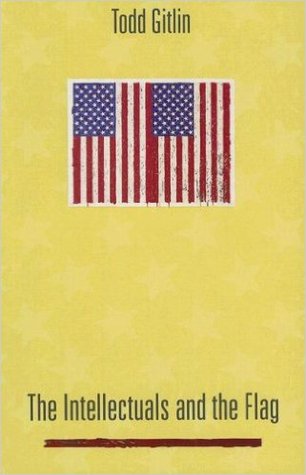

 |

|

The average rating for The intellectuals and the flag based on 2 reviews is 4 stars.
Review # 1 was written on 2008-05-19 00:00:00 Peter Forster Peter ForsterIs it possible to be a patriotic intellectual? Is attachment to one's country, especially in wartime, compatible with critical thinking and speaking truth to power? Gitlin argues that these things are indeed compatible, and he challenges intellectuals -- specifically, the chary intellectuals of the Left -- not to be ashamed of loving America. In fact, he argues, critical thought and free debate are essential parts of good citizenship. Or to put this another way, he argues that the point of critical thought and free debate is to fulfill one's duty to the community. The real strength of the book lies not in that argument, however, but in its pointing out good role models for the patriotic leftist intellectual. Gitlin describes three figures who have particularly inspired him (David Riesman, C. Wright Mills, and Irving Howe), then describes his own attempts to make a positive contribution to contemporary American life. He ends with a beautiful though sometimes overwrought essay about September 11 that demonstrates vividly that loving America and scraping before its leaders are not the same thing. |
Review # 2 was written on 2016-11-06 00:00:00 Victoria Majewski Victoria MajewskiWhile acknowledging that "The truth of a civilization is less what it professes than how it busies itself" (p. 103), Gitlin concerns himself here with what it professes, and specifically with what its left-wing intellectuals profess. He collected some of his essays dating back to 1988, rewrote them, and republished them in 2006 to respond to the particular moment for the United States after the Sept. 11, 2001 attacks where he saw a failure of left-wing political intellectualism. "Intellectuals of the left have been playing defense. It is as if history were a tank dispatched by the wrong army, and all that was left to do was to stand in its way and try to block it. If we had a manual, it would be called, What Is Not to Be Done." (p. 2) A major common thread: The difficulty in knowing when to say that values are stable, grounded, something you can hang your hat on, something you can encapsulate and transmit in ideology, and when to say that everything is postmodern discourse, literary criticism that has no desire to resolve itself, incoherent by nature, a matter of how you happen to be dancing. The former is more about politics — something you work for steadily and pragmatically — and the latter is more about art — something that has to be radical and iconoclastic to raise awareness. Gitlin's argument is that left-wing intellectuals have had a hard time knowing which way to lean at any given moment. Their words sometimes don't set off on the right track. The call sounds hollow or comes off wrong. It is neither effective nor true. The "flag" in the title is the American flag hung in the days after the Sept. 11 attacks. For a very short time, it conveyed, for many, positive sentiments of solidarity and mutual aid, but quickly it came to stand only for an inflexible, power-hungry, fear-based nationalism. Gitlin's question is whether the former approach can be retained, in spirit and intention, as a valid and preferred form of "patriotism" and whether it can be communicated effectively so it can be cultivated as a shared value. These questions are not resolved. |
CAN'T FIND WHAT YOU'RE LOOKING FOR? CLICK HERE!!!